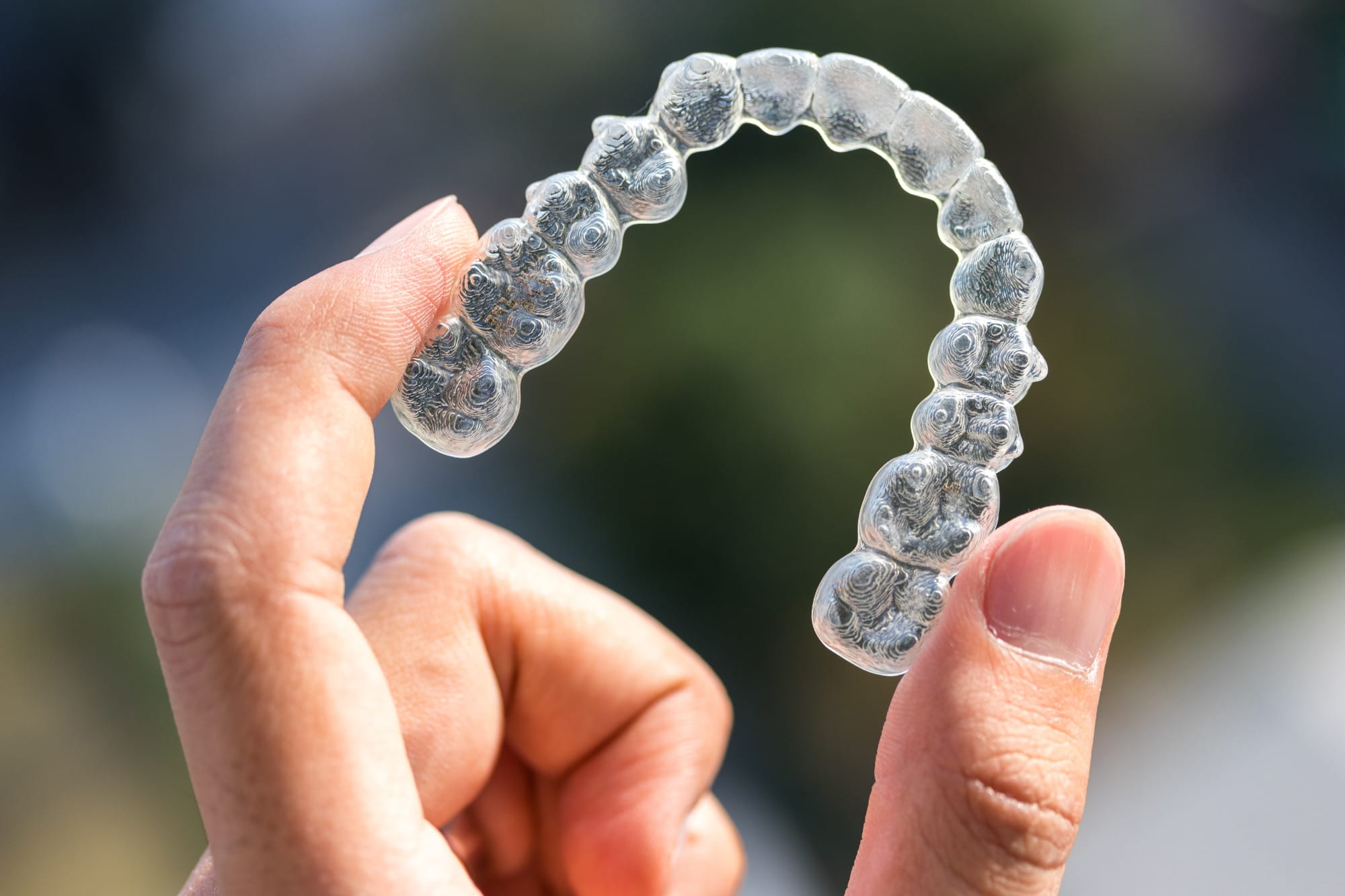
20 Sep Should I Get Invisalign? Learn What Dental Problems It Can Fix
According to the American Association of Orthodontists, 1.4 million adults visited an orthodontist in the United States and Canada in 2014.
Even adults in their 50s and 60s are getting orthodontic treatments for the first time in their lives. Are you asking yourself, “Should I get Invisalign?”
Read on for a list of the many health problems that Invisalign can help with.
Gaps in Teeth
One of the main problems Invisalign can fix is gaps in teeth. You might have gaps in one section of your mouth or between each tooth.
Abnormal jawbone growth or tooth loss can cause individuals to have gaps in their teeth.
Gaps are very obvious when you smile. But having a nice smile is not the only reason for choosing Invisalign.
Gapped teeth can result in gum problems. Your gums need the protection your teeth offer. When there are gaps, those areas of your gums are more at risk for periodontal disease.
Crowded Bottom Teeth or Crowded Top Teeth
Many people have small jawbones that don’t accommodate all your teeth. When this happens, your teeth will be crammed together in too small of a space. They may overlap or twist in order to fit in the mouth.
Overcrowded teeth are problematic for your oral health.
Crowded teeth are difficult to clean. They are more susceptible to plaque buildup because it is easy for food to get stuck in the many nooks and crannies. As we all know, plague leads to cavities and gum disease.
Do you have crowded teeth and wonder, “should I get Invisalign?” Speak to your dentist to find out if you are a good candidate for Invisalign.
Invisalign aligners are a great option for some cases of crowded teeth. But it depends on the severity and complexity of the problem.
Invisalign Overbite Correction
An overbite occurs when your upper teeth bite far over the lower teeth. This can be a result of the way the jawbones have grown or due to bad oral habits. Part of the cause can have to do with genetics.
Having an overbite means that the teeth don’t line up. That makes chewing difficult.
Over time, if left unattended, this can wear down your bottom teeth and lead to jaw pain and other jaw issues.
Underbite
Another common problem that Invisalign can remedy is an underbite. An underbite happens when the lower teeth extend past the upper teeth.
An underdeveloped upper jaw or an overdeveloped lower jaw (or both) can cause an underbite. If someone is missing upper teeth, it can lead to an underbite.
It can be difficult to chew with an underbite because the molars don’t line up for chomping.
Just like with an overbite, this issue can lead to pain in the jaw and worn teeth.
Open Bite
An open bite is less well known than overbite and underbite. Yet, it is still as serious an issue.
Some people’s teeth don’t touch when their jaw is fully closed. Whenever a few teeth don’t touch (even if others do) this is an open bite.
An open bite is caused by thumb or finger-sucking or an abnormal jaw structure.
If you have an open bite, chances are chewing is painful or very difficult. People with an open bite may have a speech impairment. They are also at risk for a thermo-mandibular joint disorder.
Crossbite
A crooked jaw often leads to teeth that don’t line up properly. As a result, some upper teeth can land on the inside of the lower teeth.
A crossbite can lead to gum disease, bone loss, and also worn teeth.
Facial, Jaw, and Neck Pain
Bruxism (more commonly known as teeth grinding) is commonly caused by crooked teeth or by an abnormal bite. In many cases, bruxism results in sore facial and neck muscles as well as worn teeth.
Wearing Invisalign can correct the underlying issues that cause bruxism. And Invisalign aligners can reprogram the muscles that are responsible for grinding.
Speech and Pronunciation Problems
Did you know that your ability to pronounce words correctly relies in large part on the position of your teeth? Most people think speech has only to do with the tongue, but that’s not true.
Let’s say that you have an open bite or have upper teeth that are too long, you will probably have a lisp or struggle to say specific words.
Some people find that they unintentionally make a whistling sound as they speak. Invisalign can correct these issues to help individuals improve their speech and pronunciation.
Poor Digestion
Your teeth are the first step in proper digestion of food. People with overbite, underbite, or crossbite often struggle to chew their food until it is in small bits.
Not chewing your food enough before swallowing can have serious consequences.
First of all, when food is swallowed in large sections, your body is unable to get all the nutrients out of it. That means you are getting less nutrition than you should be.
Undigested food sits in your intestines and causes bloating. The more you chew your food, the less acid your stomach forms to break down the food.
Invisalign can correct all sorts of bite issues. This then allows individuals to be able to chew their food into small particles before swallowing.
Should I Get Invisalign?
There you go! A detailed list of the many problems that Invisalign can correct. If you are still wondering, “should I get Invisalign” contact us at Alicia Dental for a free consultation.
Our team will be happy to help you find the best treatment course for your unique situation.


